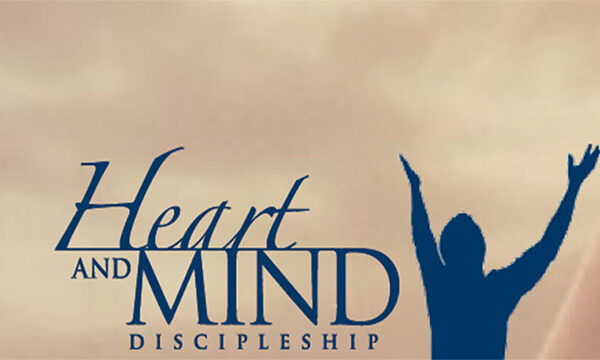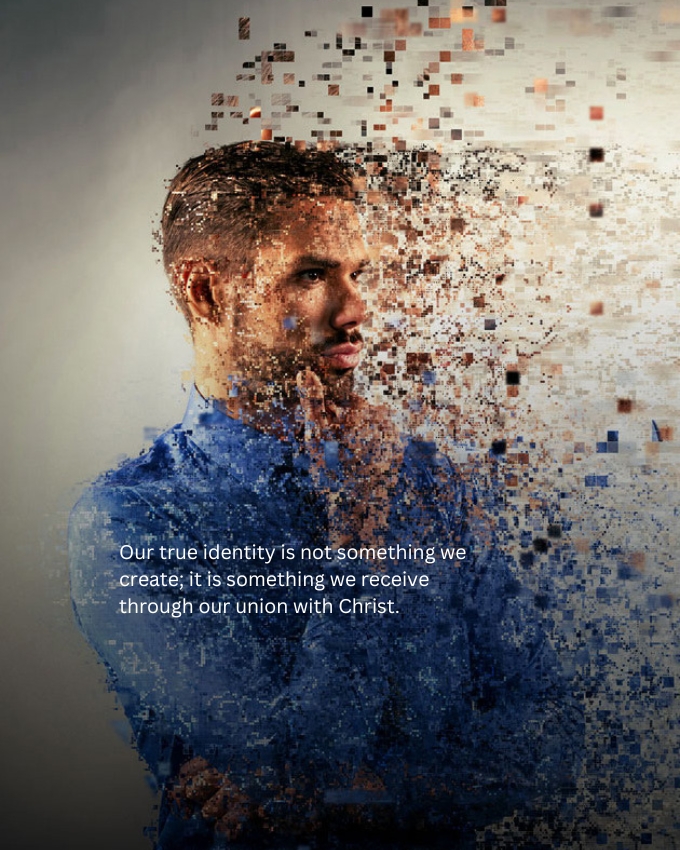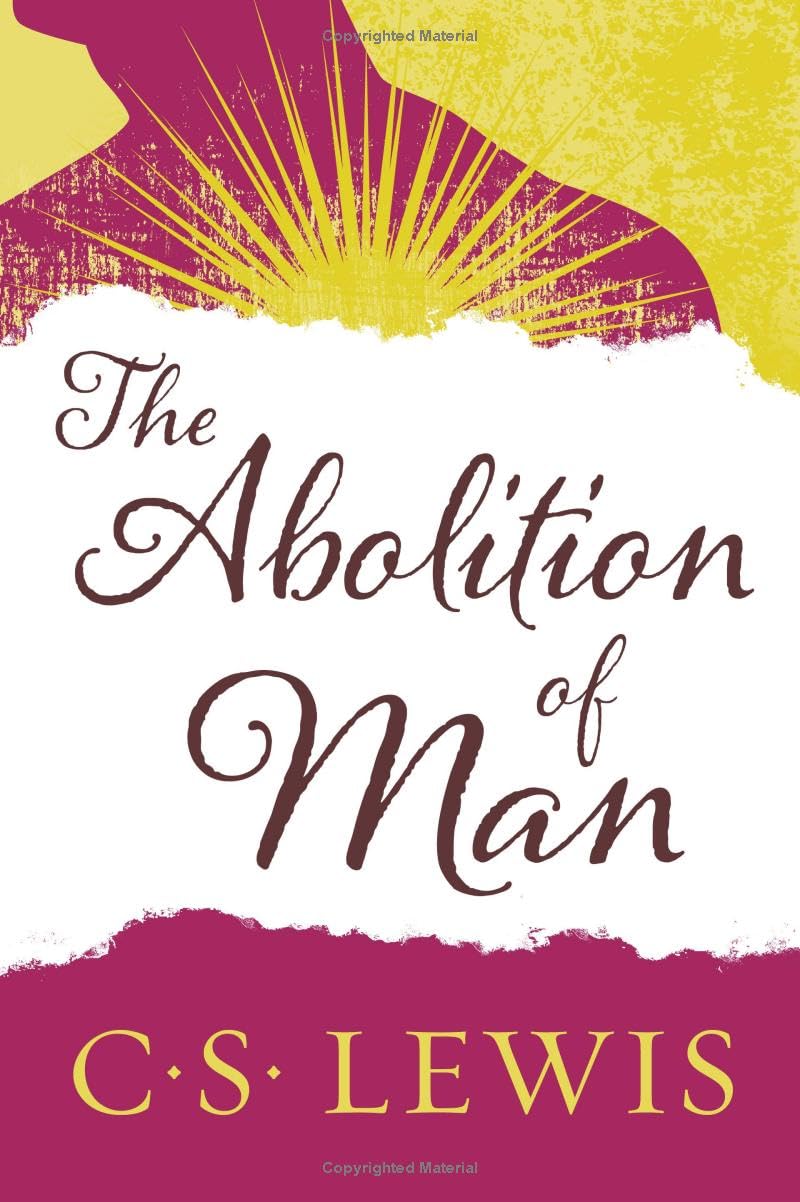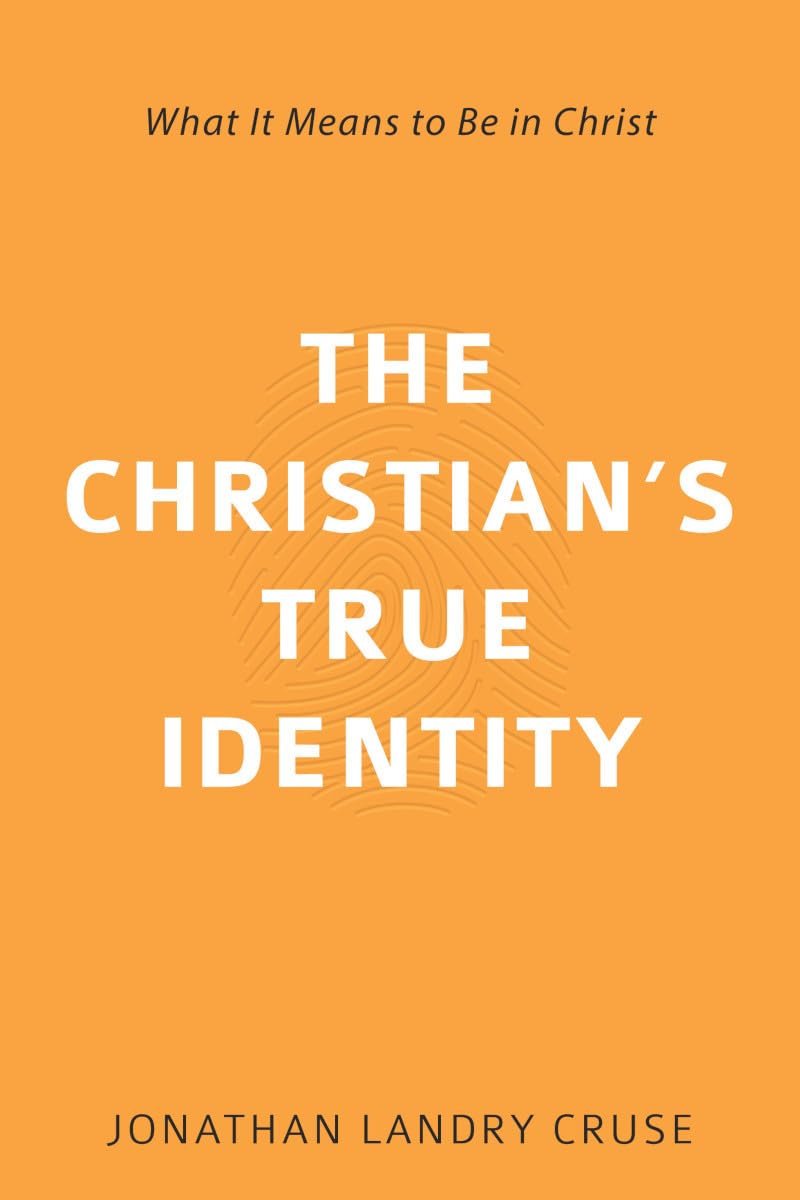Back to series

Recommended Reading:
Recommended Reading:
Recommended Reading:
Recommended Reading:
Recommended Reading:

The Crisis of Modern Self
Click here to open a Print - Friendly PDF
 the contemporary world, we are witnessing a profound crisis of identity. From the rise of expressive individualism to the fracturing of social and cultural norms, people are increasingly struggling to answer the fundamental question, who am I? This is often referred to as the “crisis of the modern self.”1
the contemporary world, we are witnessing a profound crisis of identity. From the rise of expressive individualism to the fracturing of social and cultural norms, people are increasingly struggling to answer the fundamental question, who am I? This is often referred to as the “crisis of the modern self.”1
What does it mean to be human? How should we understand ourselves in relation to others, to the world, and ultimately to God? In many ways, C.S. Lewis was ahead of his time in diagnosing this crisis. Though he wrote in the mid-twentieth century, Lewis’s observations about modernity and its impact on the self can offer a timeless critique of our fragmented age, while pointing to a path of redemption through biblical truth.
The Modern Self: A World Without Objective Meaning
A fundamental shift that has fueled the crisis of the modern self is the rejection of objective truth and meaning. In traditional Christian thought, human beings are understood as creatures made in the image of God (Gen. 1:26–27) and called to live in accordance with God’s purposes. Our identity is not self-constructed; it is discovered in relation to our Creator. The modern world, however, has shifted toward a more subjective understanding of identity. In the philosophy of existentialism and postmodernism, for example, meaning is no longer found in something transcendent; rather, it is
constructed from within the individual. As Charles Taylor argues in A Secular Age, we have moved from an “enchanted” world, filled with meaning given by God, to a “disenchanted” one, where the individual is left to create a personal sense of purpose.2 C.S. Lewis foresaw this development and warned of its dangers

In The Abolition of Man, he famously critiques modern education and culture for abandoning what he called the “Tao,” referring to the objective moral order, which includes the natural law and God’s revealed truth. He writes, “We make men without chests and expect of them virtue and enterprise. We laugh at honor and are shocked to find traitors in our midst. We castrate and bid the geldings be fruitful.”3 Here, Lewis argues that by severing ourselves from objective moral truths, we create a society incapable of producing people of character. Without an objective basis for good, the self becomes adrift, floating in a sea of subjective desires, with no anchor in reality.
This critique of modernity is deeply rooted in biblical truth. The Bible presents a world in which human beings are made to reflect God’s glory and live in harmony with His design. Psalm 139:13–14 tells us that we are “fearfully and wonderfully made” by God, and Ephesians 2:10 reminds us that we are “God’s handiwork, created in Christ Jesus to do good works, which God prepared in advance for us to do” (all Scripture quotations are from NIV). The modern attempt to construct an identity apart from God ultimately leads to confusion and despair because it denies the very foundation of what it means to be human.
The Illusion of Autonomy and the Problem of Sin
A central tenet of the modern self is the illusion of autonomy. We are told that true freedom is found in the ability to define ourselves however we please, to create our own reality without reference to any higher authority. This vision of autonomy is celebrated in many aspects of contemporary culture, from the glorification of self-expression to the rejection of traditional moral frameworks. Yet, as Lewis points out, this vision is deeply flawed. In Mere Christianity, Lewis argues that true freedom is not found in self-assertion but in self-surrender. “The more we . . . let Him take us over, the more truly ourselves we become” because He made us. He invented us. “He invented . . . all the different [people] that you and I were intended to be.”4 Lewis’s insight here is that freedom is not the ability to do whatever we want; rather, it is the ability to become what we were made to be. This, of course, aligns with the biblical understanding of freedom. In John 8:36, Jesus says, “If the Son sets you free, you will be free indeed.” True freedom comes not from autonomy but from submission to Christ, who frees us from the bondage of sin.
The biblical concept of sin further illuminates the crisis of the modern self. According to Scripture, sin is not merely individual wrongdoing; it is a rejection of God’s authority and an attempt to live independently of Him. In Genesis 3, we see the first humans succumbing to the temptation of self-rule. The serpent promises Eve, “You will be like God, knowing good and evil” (Gen. 3:5). This is the root of the modern crisis: humanity’s attempt to be its own god, to define good and evil on its own terms. This quest for autonomy is self-destructive. This rebellion leads not to freedom but to misery, isolation, and ultimately self-annihilation. The modern self’s pursuit of autonomy leads not to flourishing but to fragmentation and despair.
The Fragmentation of Identity
As modern people attempt to construct their own identities, they often find themselves caught in a web of contradictions. On the one hand, we are told to “be true to ourselves.” On the other hand, we live in a world that bombards us with conflicting images and expectations. Social media, advertising, and cultural norms pull us in different directions, leading to a fractured sense of self. This is the fragmentation of identity that many experience today. Lewis presented this problem in The Screwtape Letters, where the demon Screwtape instructs his apprentice Wormwood on how

to lead humans astray. One of the key strategies is to distract the individual with endless pursuits of self-gratification and superficial identity markers. Screwtape advises Wormwood to keep his patient’s mind in a constant tumult of shallow passions so that he never stops to reflect on his true condition before God. And he also advises, “fix his attention inward that he no longer looks beyond himself to see our Enemy [God] or his own neighbors.”5 This constant distraction leads to a fragmented life, one that is never centered on the eternal truths of God and His Word.
The Bible offers a counternarrative to this fragmentation. In Colossians 3:1–3, the apostle Paul writes, “Since, then, you have been raised with Christ, set your hearts on things above, where Christ is, seated at the right hand of God. Set your minds on things above, not on earthly things. For you died, and your life is now hidden with Christ in God.” Here Paul calls believers to anchor their identity in Christ, rather than in the fleeting things of this world. Our true identity is not something we create; it is something we receive through our union with Christ.
Lewis, too, emphasizes this theme of identity in Christ. In Mere Christianity, he writes, “Your real, new self (which is Christ’s and also yours, and yours just because it is His) will not come as long as you are looking for it. It will come when you are looking for Him.”6 In other words, the search for self-fulfillment apart from God is a dead end. It is only when we turn our gaze toward Christ, seeking to know and love Him, that we find our true selves.
The Redemption of the Self Through Christ
What, then, is the solution to the crisis of the modern self? For Lewis, the answer lies in the gospel of Jesus Christ. The self, fractured by sin and burdened by the weight of autonomy, can be redeemed only through union with Christ. This redemption involves both a death and a resurrection: we must die to our old, sinful selves to be raised to new life in Christ.

In The Weight of Glory, Lewis speaks of the eternal destiny that awaits those who are united to Christ. He writes, “The load, or weight, or burden of my neighbor’s glory should be laid daily on my back, a load so heavy that only humility can carry it, and the backs of the proud will be broken.”7 Here, Lewis emphasizes that our identity is bound up not only in our relationship with God but also in our relationships with others. To be truly human is to reflect the love of God to our neighbors, bearing the weight of their glory as we walk in humility and love.
This vision of the self is deeply biblical. In Philippians 2:5–7, Paul exhorts believers to “have the same mindset as Christ Jesus: who, being in very nature God, did not consider equality with God something to be used to his own advantage; rather, he made himself nothing by taking the very nature of a servant, being made in human likeness.” The way of Christ is the way of humility, self-sacrifice, and love. It is in following this path that we find our trueselves.
Conclusion
C.S. Lewis’s critique of the modern self is remarkably prescient and profoundly relevant to our current cultural moment. His writings expose the dangers of autonomy, the fragmentation of identity, and the loss of objective meaning in a world that has rejected its Creator. Yet Lewis’s message is not one of despair. Rather, he points to the hope of redemption through Christ, in whom we find our true identity and purpose.
The crisis of the modern self is, at its core, a spiritual crisis. It is a symptom of humanity’s attempt to live without God. But as Lewis reminds us, true freedom, fulfillment, and identity are found not in self-assertion but in self-surrender to Christ. As Jesus Himself said, “Whoever wants to save their life will lose it, but whoever loses their life for me will save it” (Luke 9:24). In Christ, we discover that losing ourselves is the only way to find our true selves.
Notes:
1 Carl R. Trueman, The Rise and Triumph of the Modern Self (Wheaton, IL: Crossway, 2020).
2 Charles Taylor, A Secular Age (Cambridge, MA: Belknap, Harvard University Press, 2007).
3 C.S. Lewis, The Abolition of Man (New York: Touchstone, 1996), 35–37.
4 C.S. Lewis, Mere Christianity (San Francisco: HarperCollins, 2001), 225.
5 C.S. Lewis, The Screwtape Letters, Letter 6 (San Francisco: HarperCollins, 2001), 27.
6 Lewis, Mere Christianity, 226.
7 C.S. Lewis, The Weight of Glory (New York: HarperCollins, 1980), 45.



Thaigo M. Silva
Pastor, Bethel Presbyterian Church Thaigo M. Silva has been the pastor of Bethel Presbyterian Church (PCA) in Lake Charles, Louisiana, since August 2022. He earned his Th.M. in Systematic Theology from Calvin Theological Seminary (2016) and completed his Ph.D. in Systematic Theology at Puritan Reformed Theological Seminary (2024). He’s authored several books including Theological Lessons from The Chronicles of Narnia and Path to God: The Philosophy of Religion of C.S. Lewis for Ordinary People. Thiago’s God-given vocation is to equip people to live as Christians in every sphere of life through teaching and preaching.Recommended Reading:
Carl Trueman, Strange New World: How Thinkers and Activists Redefined Identity and Sparked the Sexual Revolution
(Crossway, 2022).
 How did the world arrive at its current, disorienting state of identity politics, and how should the church respond? Historian Carl R. Trueman shows how influences ranging from traditional institutions to technology and pornography moved modern culture toward an era of “expressive individualism.” Investigating philosophies from the Romantics, Nietzsche, Marx, Wilde, Freud, and the New Left, he outlines the history of Western thought to the distinctly sexual direction of present-day identity politics and explains the modern implications of these ideas on religion, free speech, and personal identity.
How did the world arrive at its current, disorienting state of identity politics, and how should the church respond? Historian Carl R. Trueman shows how influences ranging from traditional institutions to technology and pornography moved modern culture toward an era of “expressive individualism.” Investigating philosophies from the Romantics, Nietzsche, Marx, Wilde, Freud, and the New Left, he outlines the history of Western thought to the distinctly sexual direction of present-day identity politics and explains the modern implications of these ideas on religion, free speech, and personal identity.
Recommended Reading:
C.S. Lewis, Abolition of Man
 In The Abolition of Man, C.S. Lewis delivers a powerful critique of modern education and moral relativism, warning that abandoning objective values leads to the dehumanization of society. He argues that by rejecting universal truths, we create "men without chests"—individuals lacking the virtue and courage needed to uphold civilization. Through his defense of the Tao, the timeless moral law found across cultures, Lewis shows how the unchecked pursuit of power and subjective morality could ultimately lead to the loss of our humanity. Thought-provoking and eerily prophetic, this book challenges readers to reconsider the foundations of ethics, truth, and what it truly means to be human.
In The Abolition of Man, C.S. Lewis delivers a powerful critique of modern education and moral relativism, warning that abandoning objective values leads to the dehumanization of society. He argues that by rejecting universal truths, we create "men without chests"—individuals lacking the virtue and courage needed to uphold civilization. Through his defense of the Tao, the timeless moral law found across cultures, Lewis shows how the unchecked pursuit of power and subjective morality could ultimately lead to the loss of our humanity. Thought-provoking and eerily prophetic, this book challenges readers to reconsider the foundations of ethics, truth, and what it truly means to be human.
Recommended Reading:
C.S. Lewis, Mere Christianity.

In Mere Christianity, C.S. Lewis presents a compelling and accessible defense of the Christian faith, distilling its core beliefs beyond denominational differences. Originally a series of radio talks during World War II, the book explores moral law as evidence of God's existence, the nature of Jesus Christ, Christian virtues, and the process of spiritual transformation. With his signature clarity and logic, Lewis makes a persuasive case for faith, addressing skeptics and believers alike. Engaging, thought-provoking, and deeply insightful.
Recommended Reading:
Jonathan Landry Cruse, The Christian’s True Identity: What It Means to Be in Christ (Reformation Heritage Books, 2022).

With its identity politics, numerous gender identity options, “selfies,” and “you-do-you” mentality, society emphasizes individualism, but it seems like people are having a harder time than ever figuring out who they are. The problem is, they are looking for their identity in the wrong places.
Are you seeking your identity in relationships, a career, family, race, gender expression, or other circumstances―and feeling dissatisfied? Then this book is for you.
Recommended Reading:
Jean Gaffin, Who He Says I Am: A Study of Our Identity in Christ (Christian Focus Publications, 2020).

It is crucial to know who we are. The world loves to label us – by our gender, by our ethnicity, by our job – but as Christians, our identity is not in those labels. We are ‘in Christ’. We are united to him by faith. This devotional digs into what that means, how it impacts our lives, and why it matters most who God says we are.
 COPYRIGHT: This publication is published by C.S. Lewis Institute; 8001 Braddock Road, Suite 301; Springfield, VA 22151. Portions of the publication may be reproduced for noncommercial, local church or ministry use without prior permission. Electronic copies of the PDF files may be duplicated and transmitted via e-mail for personal and church use. Articles may not be modified without prior written permission of the Institute. For questions, contact the Institute: 703.914.5602 or email us.
COPYRIGHT: This publication is published by C.S. Lewis Institute; 8001 Braddock Road, Suite 301; Springfield, VA 22151. Portions of the publication may be reproduced for noncommercial, local church or ministry use without prior permission. Electronic copies of the PDF files may be duplicated and transmitted via e-mail for personal and church use. Articles may not be modified without prior written permission of the Institute. For questions, contact the Institute: 703.914.5602 or email us.
-
Recent Podcasts
Emotions, Divine Suffering, and Biblical Interpretation
by Kevin J. Vanhoozer on February 7, 2025Is being jealous – red faced – a...Read More
-
Finding God Through Science – Dr. Michael Houts’ Story
by Michael Houts, Jana Harmon on January 31, 2025
-
William Wilberforce and His Circle of Friends
by Richard L. Gathro on January 24, 2025
-
Recent Publications
C.S. Lewis and the Crisis of the Modern Self
by Thaigo M. Silva on February 1, 2025What does it mean to be human? How...Read More
-
Why Are Christians So Hypocritical?
by William L. Kynes on January 1, 2025
-
How Artists and Their Art Can Point Us to the Creator
by Russ Ramsey on December 2, 2024
0
All Booked
0.00
All Booked
0.00
All Booked
23993
Heart and Mind Discipleship Live Online Small Group 8:00 PM ET
https://www.cslewisinstitute.org/?event=heart-and-mind-discipleship-live-online-small-group-800-pm-et&event_date=2025-02-25®=1
https://www.paypal.com/cgi-bin/webscr
2025-02-25

Next coming event
Days
Hours
Minutes
Seconds
Heart and Mind Discipleship Live Online Small Group 8:00 PM ET
On February 25, 2025 at 8:00 pmCategories
Speakers

Thaigo M. Silva
Pastor, Bethel Presbyterian Church
Team Members






